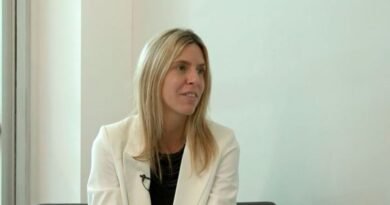Pedro Sánchez promises Paraguayan president to work for Mercosur deal finalizing
[ad_1]
Pedro Sánchez promises Paraguayan president to work for Mercosur deal finalizing
Peña insisted that Mercosur has other arrangements in sight, such as Singapore and the United Arab Emirates
Spanish Prime Minister Pedro Sánchez held a telephone conversation this week with Paraguayan President Santiago Peña during which he insisted on his country’s commitment to finalizing the trade deal between the European Union and Mercosur while he held the rotating presidency of the northern alliance. The deal would unite 800 million people and represent a quarter of the world’s Gross Domestic Product (GDP). If things go on as projected, Mercosur would obtain duty-free access for 93% of its exports to the EU, with a 10-year deadline to achieve this goal.
The conversation also took place ahead of Peña’s inauguration as pro tempore president of the five-member South American bloc on Dec. 7, when Bolivia will formally join Argentina, Uruguay, and Brazil.
The bi-regional agreement not only brings tariff benefits but is expected to boost GDP growth by creating conditions conducive to the transformation of the productive matrix. This change will facilitate integration into global value chains. It is projected that, within 15 years, Mercosur will be able to reduce tariffs on 90% of its imports from the EU, while the EU will eliminate tariffs on 93% of its imports from Mercosur within 10 years.
In a publication on X, Peña said we are going to work on strengthening bilateral relations. While in Rome, Peña also insisted Mercosur would open up to other markets such as Singapore or the United Arab Emirates should the agreement with Europe was not completed by Dec. 6 when Brazil’s Luiz Inácio Lula da Silva still heads the South American Common Market. He spoke of Lula’s great leadership because if there is a president and a moment in which this agreement can be closed, it is now.
During a Mercosur summit in Rio de Janeiro on Dec. 7, Paraguay is scheduled to receive the rotating presidency of the bloc from Brazil.
After two decades of talks, the EU and Mercosur reached an agreement in 2019, but it still needs to be ratified.
[ad_2]
Source link




